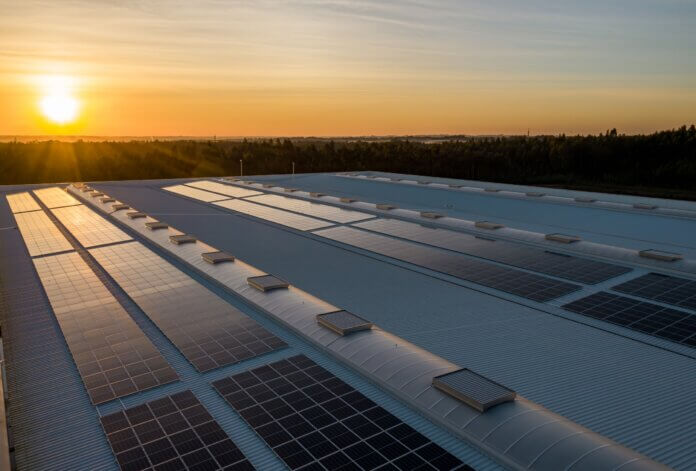
The New Jersey Board of Public Utilities (NJBPU) reports that the state’s solar market surpassed 150,000 installed systems in 2021. Despite the ongoing COVID-19 pandemic challenges, more than 13,800 solar installations began commercial operations in New Jersey in 2021. They totaled more than 305MW DC and contributed to a statewide cumulative power of 3.8GW. This provides electricity for over 150,000 homes and businesses in New Jersey. There are more than 1.6 GW of projects currently in development, which gives assurances that there will be strong development in the next year.
“After a tremendous year, the future is especially bright for solar energy in New Jersey, and that’s because of our emphasis on working collaboratively with stakeholders to develop policies that advance our ambitious clean energy goals while supporting overall market health,” says Joseph L. Fiordaliso, NJBPU’s president. “By modernizing our solar programs over the past year and maintaining our focus on ratepayer affordability, we are ensuring the strength and long-term viability of New Jersey’s thriving solar industry. We are also looking ahead to the development of new programs for grid-scale and dual-use solar, as well as a permanent program for community solar.”
New Jersey’s solar market achieved various major policy milestones throughout 2021, including transitioning from the state’s legacy Solar Renewable Energy Certificate (SREC) market to a new long-term incentive through the Successor Solar Incentive (SuSI) Program. The SuSI Program consists of a competitive incentive for grid supply or net-metered solar projects greater than 5MW and a fixed incentive for net-metered solar projects under 5MW. In order to establish the competitive process, the Board Staff will continue engaging with stakeholder groups over the coming months. The SuSI Program, once fully implemented, is expected to offer incentives to twice as much annual installed solar at approximately half of the cost to ratepayers.
The Transition Incentive (TI), which closed to new registrations in August 2021, set a new mark with more than 12,570 projects awaiting approval. These projects were seeking incentives for 1,600 MW DC of capacity. This includes the 105 new community-based solar applications that were granted conditional approval for participation in Program Year 2 (Community Solar Energy Pilot Program). These community solar projects have a planned capacity of 165 MW DC, more than twice that approved for Program Year 1. Additionally, 18 “subsection (t)” projects proposing to construct more than 365 MW DC on brownfields and landfills submitted applications for conditional certification before the August 27 deadline. These applications will be reviewed by the board and approved into the TI Program pipeline by 2022.
The board also launched a Grid Modernization Proceeding in 2021 to engage stakeholders about current distribution grid interconnection processes and policies, and to solicit suggestions for possible improvements to speed grid modernization and increase levels of distributed energy resource integration (DER).
Staff expects another busy year in 2022 as the board works to develop and launch several new solar programs, including the SuSI Program’s Competitive Solar Incentive (CSI) Program for grid supply and large net-metered solar, a Dual-Use pilot program, and a permanent community solar program.
Governor. Governor Phil Murphy signed the Solar Act of 2021 (Solar Act L. 2021 c.169), which establishes a framework for continuing growth in the grid supply and net-metered solar markets. The Dual Use Solar Act L. 2021 c. 170 directs the board a pilot program to install solar on unpreserved farmland, while still maintaining active agricultural orhorticultural operations. The board will engage with all stakeholders to obtain input from New Jersey’s solar market participants throughout 2022. This will be done in close collaboration and with the New Jersey Department of Agriculture as well as the New Jersey Department of Environmental Protection.
The board anticipates future stakeholder engagement, program rollout, and includes the Competitive Solar Incentive Programme with Staff Straw Proposal (spring 2022), and the first solicitation that is planned to take place before the end of the year. The Staff Straw Proposal will be submitted for the Solar Siting Criteria CSI Program in spring 2022. The Permanent Community Solar Program will include the Staff Straw Proposal in the spring of 2022 and a planned permanent program that will be established in 2022. The Staff Straw Proposal will be submitted to the Dual-Use Solar Pilot Program in summer 2022. This solicitation is expected to be the first of its kind.
Image: Photo by Nuno Martques on Unsplash
